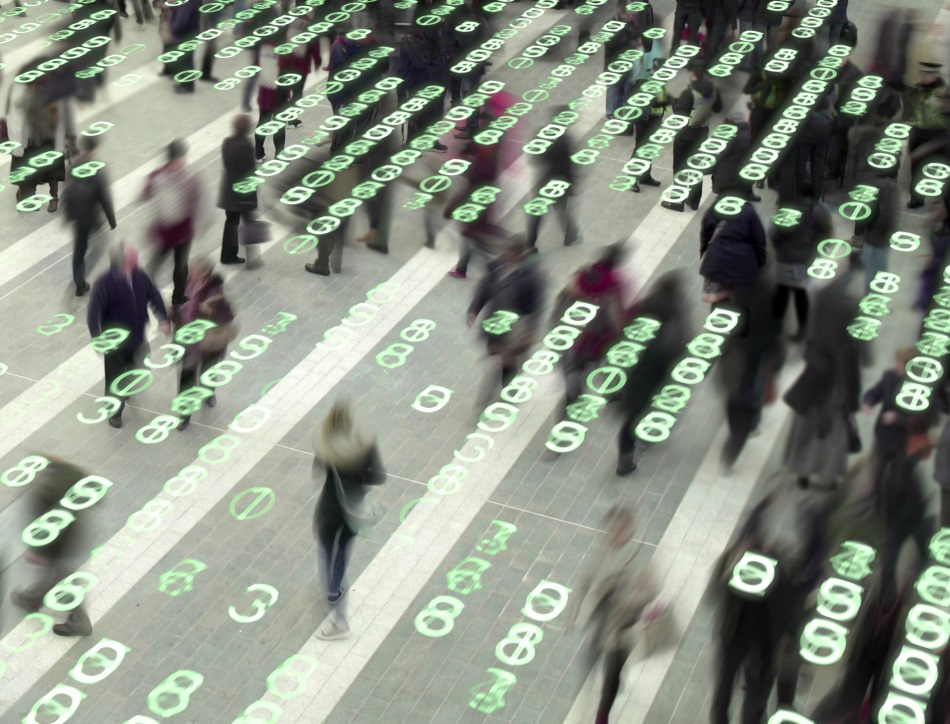Part of the Royal Society’s role is to help others to think about the ‘hard issues’ of the day. Recently we have been doing hard thinking of our own to start to explore issues at the interface of science and trade and how latest research might help tackle them.

Gone are the days when trade was primarily a process of shipping finished products around the world. The exports and imports of today are increasingly a goods, services and data asset all in one. Innovation and our increasing ability to harness the power of data means the pace of change in what and how we trade is only set to accelerate.
The fact is that scientific and technological innovations change the rules of trade faster than they can be written – those that underpin the World Trade Organisation were negotiated and agreed a year before the internet was commercialised and when it had less than two million users, instead of 3.7 billion users today. Part of the Royal Society’s role is to help others to think about the ‘hard issues’ of the day. Recently we have been doing hard thinking of our own to start to explore issues at the interface of science and trade and how latest research might help tackle them.
To inform our early thinking we worked with colleagues from the Department for International Trade (DIT) to host two futures workshops and a high-level Royal Society Breakfast. A partnership with the American Association for the Advancement of Science (AAAS) also saw the 5th Neureiter Science Diplomacy Roundtable held on the theme of ‘Science and Technology and the Frontiers of 21st Century Trade Policy’, especially timely with the recent signing of the first-ever US-UK science and technology agreement.
We were delighted Antonia Romeo, the Permanent Secretary of DIT was able to join us for our first Royal Society Breakfast along with leading scientists, economists and business figures. Discussion focused on a challenge: ‘given the trends in science and technology what is the trade deal we would wish we had done in 25 years’ time?’ The experts that we brought together had plenty of interesting views.
Data lies at the heart of a lot of the answers to that challenge. Big data sets mean you could start to model the global trade system. These could help reveal interdependencies and enable decisions to be made that make the system more resilient and better able to cope with shocks, for example if a natural disaster devastated a major port. This also highlights a wider trend. As we produce more information than ever, we also need to consider the value and potential use of analysed data. With the added value of cross-border data flows worth $2.8 trillion to the global economy in 2014, more than the $2.7 trillion added by global trade in goods, data will figure prominently.
Data is also changing the nature of trade itself, with data, services and goods becoming increasingly intertwined. We often no longer buy films or music but instead pay for the service to enable us to watch or listen to them. This process of ‘servicification’ is much more wide ranging than just for low price consumer goods. Modern vehicles, from cars to tractors, depend on software for their functionality. This is illustrated by Tesla extending the range of its cars for those escaping Hurricane Irma.
Digital technologies could also help solve problems arising from complex supply chains and the quest for frictionless borders. Distributed ledgers, like blockchain, for example could help track items from source and help solve the problems around rules of origin, speeding up border checks. But in this increasingly data-enabled and interconnected world, the time may also have come when we need to rethink and redefine what a border has come to mean.
Most of these new and innovative products are separated from the question of tariffs which often dominate coverage about trade. With the rise of services, accounting for 80% of the UK economy, tariffs could become less important and non-tariff barriers more so.
It is important to understand the implications for what data is traded, by who and how. We also need principles to ensure trust in the management and use of data as a whole, as the Royal Society and the British Academy have recently made the case for. As we leave the EU regulatory landscape we need to chart a course that enables us to access different regulatory markets while protecting UK citizens and businesses.
Evidence synthesis can also help ensure that the debates when negotiating trade deals are on what matters, not on arbitrating technical disputes, by providing policymakers with timely unbiased summaries of all the available evidence on a topic. The Royal Society and the Academy of Medical Sciences are currently collaborating to explore existing models and develop of set of principles for good evidence synthesis in policymaking.
Ultimately, science will play a huge role in shaping the trading environment of the future. What we exchange across borders, be it data, equipment, knowledge or people, will shape how science is done, how we collaborate and conduct research. As the UK’s National Academy for science, the Royal Society will provide independent and authoritative scientific advice and ensure that that policymakers and scientists work together to realise the benefits from science and technology and how they are transforming what we trade.
To this end we will be producing a short report of the 5th Annual Neureiter Science Diplomacy roundtable we hosted with AAAS on ‘Science & Technology and the Frontiers of 21st Century Trade Policy’. We are also collaborating with the British Council and Wilton Park to host an event to explore the use of evidence in multilateral negotiations in early 2018. If you would like to get in touch with us about our work in this area, please email: thomas.goldsmith@royalsociety.org



